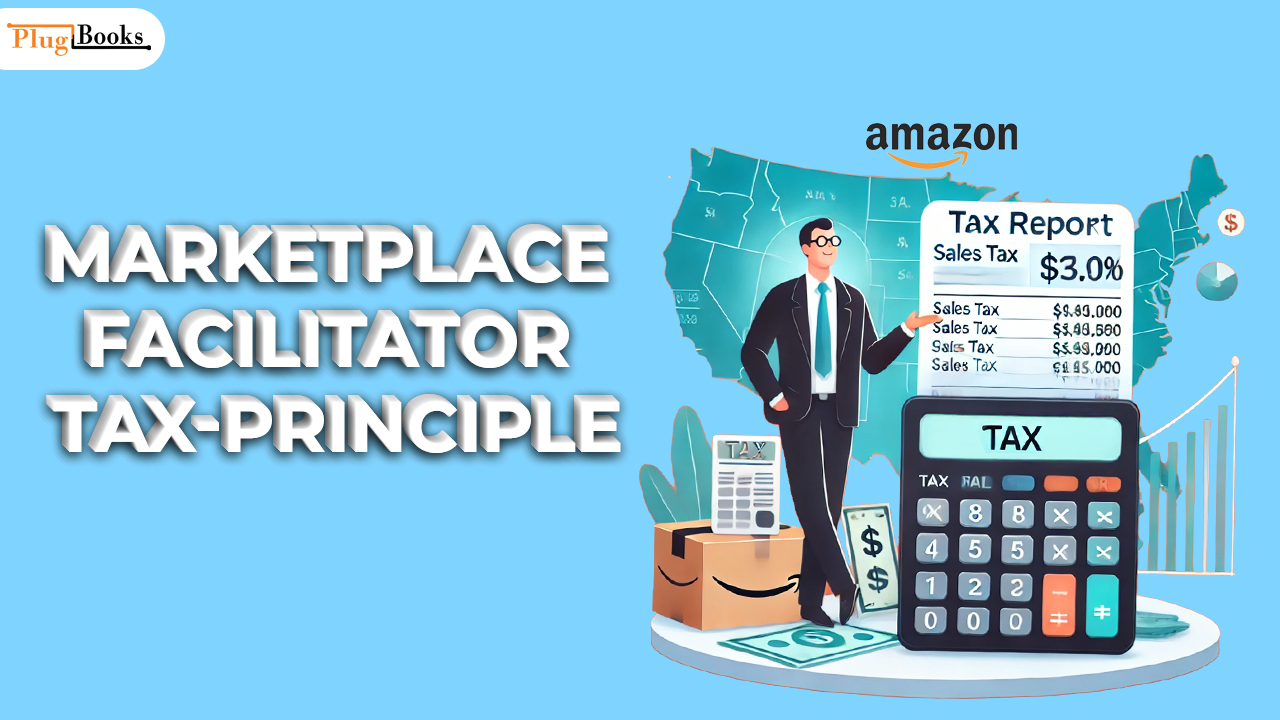If you’re an online seller, especially one using platforms like Amazon, Etsy, or eBay, you may have heard the term “marketplace facilitator tax-principal” floating around. But what exactly does this mean, and why should you care?
This rule is a critical piece of tax legislation that impacts sellers and online platforms alike. It shifts tax responsibilities onto the marketplace itself, rather than individual sellers. This post will help you understand what itl is, how it works, and what it means for your business.
What is Marketplace Facilitator Tax-Principal?
Thel refers to a tax rule where the online marketplace—like Amazon, eBay, or Etsy—becomes responsible for collecting and remitting sales tax on behalf of the sellers using their platform. This concept is especially important in the United States, where sales tax laws vary by state.
In a nutshell, if you’re selling on an online marketplace, the platform takes on the role of the “tax principal,” collecting the necessary sales taxes and sending them to the relevant state authorities. This process simplifies tax compliance for sellers, as they don’t have to worry about the technicalities of collecting and remitting taxes for each state they do business in.
How Does Marketplace Facilitator Tax-Principal Affect Sellers?
As a seller, the marketplace facilitator tax-principal rule affects how you handle sales tax. Instead of tracking the sales tax for every transaction and remitting it to the appropriate state, the marketplace will take care of this process on your behalf. Here’s how it works:
- Sales Tax Collection: The marketplace automatically collects sales tax on eligible transactions based on the buyer’s location.
- Sales Tax Remittance: After collecting the tax, the marketplace then remits it to the state’s revenue department. This means sellers no longer need to worry about filing sales tax returns for these transactions.
- Marketplace Reporting: While the marketplace handles the collection and remittance, you still need to keep track of your sales for reporting purposes. Most platforms provide detailed reports that show the tax collected on each sale, so you can stay compliant.
Important Note: Not all products may be subject to sales tax, depending on the state and item type. It’s essential to stay updated with the tax rules of each state where you sell.

Marketplace Facilitator Tax-Principal vs. Seller Tax Responsibilities
You may be wondering: Does this rule completely remove tax obligations for sellers? The answer is no. While the marketplace takes on the role of the tax collector for sales tax in most cases, sellers still have to:
- Ensure Proper Tax Codes: Make sure your products are categorized correctly for sales tax purposes. Misclassification could lead to problems later.
- File State Income Taxes: In some cases, sellers are still responsible for filing income taxes in states where they have a tax obligation, even if sales tax is handled by the marketplace.
- Understand Nexus Rules: If you have a physical presence in a state (e.g., an office, warehouse, or employee), you may still have sales tax obligations even if you sell through a marketplace.
Why Was Marketplace Facilitator Tax-Principal Introduced?
The main reason for introducing these rules is to simplify tax collection and compliance for states. Before these rules were implemented, each individual seller was responsible for figuring out where they had tax obligations, collecting sales tax from buyers, and remitting it to the appropriate authorities. This could be incredibly complex, especially for businesses selling in multiple states with varying tax rates.
By shifting this responsibility to the marketplace, states ensure that sales tax is consistently collected and remitted, reducing the chance of tax evasion and improving overall compliance.
Key Benefits of Marketplace Facilitator Tax-Principal for Sellers
While the rules might sound complex, they offer several key benefits for online sellers:
- Simplified Tax Collection: Sellers no longer need to track sales tax rates for each state, reducing administrative burden.
- Reduced Risk of Error: Since the marketplace handles sales tax collection and remittance, the chances of making a mistake on your tax returns are minimized.
- Increased Focus on Business: With tax responsibilities largely handled by the marketplace, sellers can focus more on growing their business rather than dealing with tax filings.
- Compliance Assurance: The marketplace ensures compliance with state tax laws, which reduces the risk of penalties or audits for tax issues.
Challenges for Sellers
Although this tax rule simplifies some aspects of e-commerce, it can still present challenges:
- State-Specific Rules: While marketplaces handle tax collection, sellers need to stay informed about state-specific tax laws that may affect their products.
- Reporting Requirements: Even though sales tax is collected by the marketplace, sellers must still maintain proper records for tax filings, including income tax.
- Platform Variations: Different marketplaces may have varying systems for handling tax collection, which can sometimes create confusion for sellers using multiple platforms.
How to Stay Compliant with Marketplace Facilitator Tax-Principal Rules
To stay compliant and avoid any tax headaches, consider the following steps:
- Review Marketplace Reports: Regularly check the sales tax reports provided by the platform. These can help ensure that the correct tax rates were applied and remitted.
- Consult a Tax Professional: If you’re unsure about your specific tax obligations or how the marketplace facilitator tax-principal rule applies to you, consult with a tax professional who specializes in e-commerce.
- Monitor Tax Laws: Keep up with changing sales tax laws in the states where you sell. Tax regulations are frequently updated, and staying informed will help you avoid penalties.
Conclusion
Understanding these rules is crucial for any online seller. By shifting the responsibility of tax collection to the marketplace, e-commerce platforms are helping businesses navigate the complex world of state sales tax more easily. While this simplifies many aspects of tax compliance, it’s important for sellers to stay informed and ensure they’re meeting all their other tax obligations.
With the right tools and knowledge, you can focus on growing your business, knowing that your tax responsibilities are largely taken care of by the marketplace facilitator.





Marketplace Facilitator Tax-Principal: A Simple Guide
aplisrzzirg
plisrzzirg http://www.gyf5q3889wicc2p3ci172d7877kqi44ms.org/
[url=http://www.gyf5q3889wicc2p3ci172d7877kqi44ms.org/]uplisrzzirg[/url]